HOME | FAMILY | CONDUCTING | SINGING | USU | STEINER | STANFORD | PHOTOS
STEINER 2013-2014 PROGRAMS | RECORDED AIDS | PRONUNCIATION AIDS
TRANSLATIONS AND TEXTS | COMPOSERS | STEINER MEMBERS WEB SITE
SOLOIST OPPORTUNITIES | TEXT/MUSIC CORRECTIONS
Steiner Chorale Members: If you would like to contact me,
please feel free to do so at
wmramsey@stanford.edu
I welcome your email/comments/questions, etc.
Some Composers for 2013-2014 Concerts
December, 2013 Concert
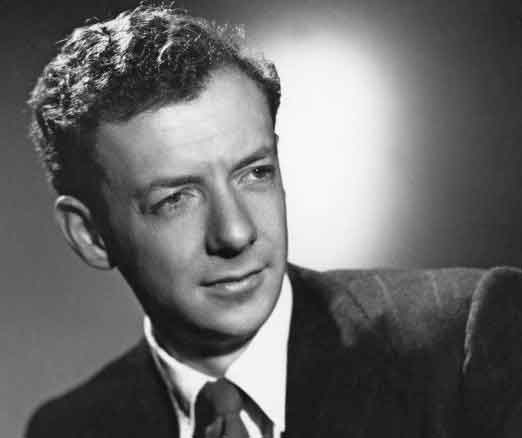
Benjamin Britten
(1913-1976) - Centenary of Benjamin Britten's Birth
Click here for additional images of Benjamin Britten
All My Heart This Night Rejoices
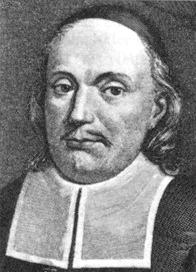
Johann Georg Ebeling
(1637-1676)
Lulay My Liking | Christmas Day
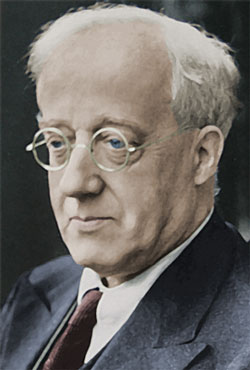
Gustav Holst
(1874-1934)
Riu, riu chiu

The melody for Villancico no. 41, "Riu riu chiu",
from Cancionero de Uppsala [Utl.vok.mus.tr. 611]
(16th Century)
In 1906 the Spanish diplomat and music scholar Rafael Mitjana (1869-1921) discovered a book of songs – ”cancionero” in Spanish – in the music collections at Carolina Rediviva which he realised were quite unique and of "enormous importance to the history of Spanish music".
The book was printed in Venice in 1556 and its title is Villancicos de diversos autores a dos, y a tres, y a quarto, y a cinco bozes, but its discoverer chose to call it the Cancionero de Uppsala.
Cancionero de Uppsala is special in several ways. This is because the book is the only known copy in the world and because it contains profane songs in Spanish, with flamboyant lyrics and music. It is also an important source for the music genre villancicos - a kind of popular song that was refined in the court of the Spanish renaissance - of value not only for scholars of music, but also linguistics and literature.
The book is also known as Cancionero del Duque de Calabria, The Duke of Calabria's Book of Songs, since the music it contains derives from the court in Valencia into which this duke, Ferdinand de Aragon, married in 1526. The court in Valencia was widely known for its rich music life, which attracted the most popular composers and skillful musicians. There were splendid parties with plays and music, particularly at Christmas time - the Aragon family were believed to be descended from one of the three wise men. Villancicos were composed for these Christmas festivities and 12 of these Christmas carols for three voices are in the song book, including Rìu riu chiu, the most well known of all renaissance villancicos.
Cancionero de Uppsala consists of 70 works, of which 54 are villancicos in madrigal style for 2, 3, 4 or 5 voices, and 16 are practice pieces in the different ecclesiastical modes. All the lyrics are in Spanish except for four in Catalan, one in Latin and one in a Portuguese dialect. The songs are mainly about eroticism and unrequited love, jealousy, home sickness and the Virgin Mary. No composers are named apart from Nicolas Gombert (ca 1500-1556), a Flemish employee at the court in Madrid, who is given as the composer of song no. 49. Scholars have since identified some other composers: Bartolomé Cárceres, Matheo Flecha and Pedro de Castrana.
Listen to Riu riu chiu from Cancionero
The recording is from the CD "Cancionero de Upsala 1556", Ensemble Villancico, Stockholm, Conductor: Peter Pontvik, Proprius, 1996.
The above is all quoted from http://www.ub.uu.se/en/Collections/Music-collections/Some-treasures/Cancionero-de-Uppsala/
And God Said One Day Shall Dawn
(from King David)
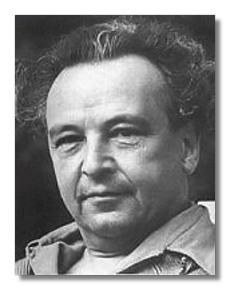
Arthur Honegger
(1892-1955)
March, 2014 Concert
Johannes Brahms
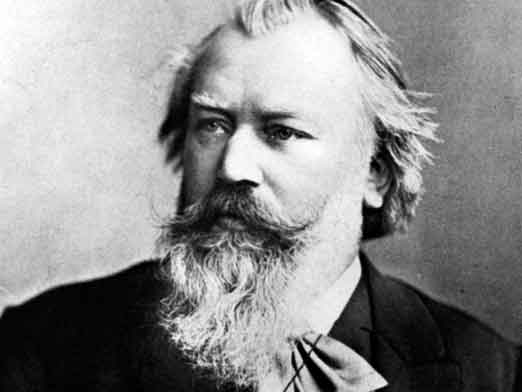
Click here for additional images of Johannes Brahms
(1833-1897)
Brahms: A Life in Pictures
Brahms speaks and plays at the Felliger house, 1889.
(from an ancient Edison cylinder)
(If the above fails to load, click here to go directly to YouTube)
